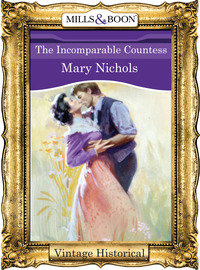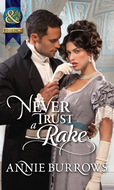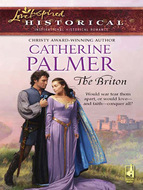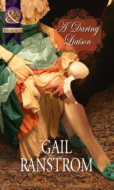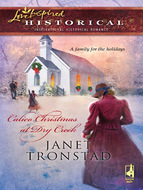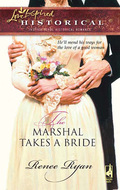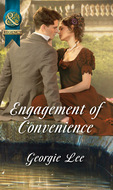Kitap dosya olarak indirilemez ancak uygulamamız üzerinden veya online olarak web sitemizden okunabilir.
Kitabı oku: «The Incomparable Countess», sayfa 4
Chapter Three
Frances was called upon to exercise her indifference sooner than she expected. The Duke of Loscoe was invited to the ball which she had helped to organise in aid of the orphanage. She and a committee of ladies had been planning it for some time and it was to be as grand an affair as they could manage to which all the ton had been invited. He had already made a generous donation to the cause of the orphans and it would have been unthinkable to exclude him.
The choice of venue had been the subject of great debate; should it be held in Almack’s Assembly Rooms, at an hotel, or in a private house? The Assembly Rooms were considered stultifying and there was hardly a hotel with large enough rooms, and besides, their owners would not wish to turn away their ordinary customers to make room for them. If it was to be a private house, then it must have a ballroom big enough to accommodate all the guests they hoped would pay for the privilege of attending.
‘It had better be Corringham House,’ Frances had said.
‘But, Lady Corringham, are you sure?’ Mrs Butterworth had asked. ‘There might be people wishing to come who might not be quite top of the trees. You never know how they might conduct themselves.’
‘If they are prepared to pay, then I am sure we can handle any problems of behaviour. After all, beggars cannot be choosers.’
‘My lady!’ Lady Graham, another member of the committee, cried in horror. ‘We are not beggars. Never let it be said that we are begging.’
Frances had smiled. ‘No, but we are going to ask an exorbitant amount for a ticket, are we not? They deserve Corringham House for that.’
It was some time since Frances had entertained on such a lavish scale; usually she gave small intimate suppers at which conversation, listening to music and playing a few hands of whist were the main ways of passing time. There had not been a ball at the house since Augusta’s come-out five years before and the ballroom had not been used since. She thought she would enjoy the challenge.
And so, on a warm Saturday evening in May, when London was just beginning to fill up for the Season, Corringham House was ablaze with light. Extra servants had been busy all day, polishing the ballroom floor; others were scurrying about carrying chairs, tables, plates and glasses to wherever they were needed. The dining room had been laid out with one long table covered with a pristine damask cloth, ready for the food to be set upon it, and dozens of smaller tables were arranged round the room for the guests to eat supper in small intimate groups. In the over-heated kitchen an army of specially contracted caterers were frantically preparing food, getting in each other’s way and cursing volubly. By early evening, banks of fresh flowers were in place and the musicians had arrived.
Frances made one last tour of the rooms, including one on the first floor for those who did not care to dance and preferred cards, and two others set aside for gentlemen and ladies to leave their hats and cloaks and refresh themselves. There was an attendant in each. Satisfied that all was in readiness, she went up to her bedroom on the second floor, where Rose was waiting to help her dress. She felt hot and sticky and glad to soak in the bath which had been put on the floor of her dressing room and filled with warm, perfumed water.
Until then she had been too busy to reflect on the possible success or otherwise of the enterprise. What would her aristocratic friends think of being asked to pay for the privilege of being her guests? And would they come, knowing that others, just as rich but less socially acceptable, might also pay and they would be obliged to mix with them? It was too late to worry about that now. She stood up and stepped out of the bath. Rose wrapped a towel round her and began rubbing her dry.
When the first carriage rolled up the drive and deposited its occupants on the doorstep, she was ready to greet them. She had chosen to wear an open gown in amber crepe over a silk slip in pale lemon. It had a scooped neckline and puffed sleeves. The amber crepe and the sleeves were sewn with tiny seed pearls and the bodice was caught under the bosom with tiny yellow flowers, the eye of each one studded with a pearl. Her hair was arranged à la Grecque and studded with more pearls. Apart from her rings, she wore no other jewellery.
After the ladies of the committee, who had all arrived promptly, the first guests to arrive were Augusta and her husband, Sir Richard Harnham. Frances, always pleased to see her stepdaughter, kissed her fondly. ‘I am so glad you are here. I have been thinking it will be a very poor do and no one will come.’
‘Fustian!’ Richard said, smiling at her and raising her hand to his lips. ‘Nothing you do is a poor do. It will be a great squeeze, you see if I am not right.’
‘I do hope so.’ She smiled suddenly. ‘Even if no one comes, they have already paid for their tickets. We have banked the money and plans have already been made to spend it.’
‘Oh, Mama, please stop worrying,’ Augusta said. ‘Enjoy yourself.’
Considering there was only twelve years between them, Frances found it amusing that Augusta, now that she was grown up and married and had children of her own, still insisted on calling her Mama, but it did not displease her; she was very fond of Augusta.
Her stepson, James, was the next to arrive, dressed in a black evening coat, skintight pantaloons and shirt points high enough to scratch his cheeks. His muslin cravat had been tied to an intricacy that would have done credit to Beau Brummell. He had a young lady on his arm whom Frances had never seen before, but whom she immediately knew to be a very expensive chère amie indeed. She was dressed in a cream satin high-waisted gown embroidered all over with gold and silver thread. Her hair had obviously been dressed by someone skilled in the art and she wore a diamond necklace, diamond ear drops and several gold bracelets.
‘May I present Miss Annabelle Franks, ma’am,’ James said, drawing her forward.
‘My lady,’ she said, dropping into a curtsy. ‘I am very pleased to meet you.’
‘You are welcome, Miss Franks.’ Then, to her stepson, ‘James, Augusta is arrived, do go and speak to her.’
She watched them go with some trepidation. James had succeeded to his father’s title at the age of seventeen and now, at twenty-four, was something of a scapegrace. Frances had had many a run-in with him over the coils he landed himself in, but for all that she loved him dearly. When not living at the Corringham estate in Essex, he stayed in bachelor chambers in Albany, rather than at Corringham House. She suspected it was because he did not want her to know everything he was up to.
He and the young lady had hardly passed into the ballroom when Sir Percival arrived. He looked like a peacock in his green velvet knee breeches, silk stockings and mauve satin coat. There was a froth of lace at his throat and more spilling over his wrists. He took her hand and bent to kiss it, smiling at her. ‘Fanny, you look beautiful tonight.’
She laughed. ‘Well, thank you, Percy. And I must say, you look magnificent.’
He preened himself in his old-fashioned clothes, unaware of the slight irony in her tone. ‘I shall expect at least one dance.’
‘You may have it, if I have time to dance at all. I might be too occupied.’
‘Gammon! You must make time. I did not pay a ransom for a ticket to be deprived of the pleasure of dancing with you, which was the only reason I came.’
‘Not to help the orphans?’ she teased.
‘I could have made a donation without coming.’
‘I hope not too many of our guests share your sentiments or we shall have an empty ballroom.’
‘No, for half London is agog to see the inside of a house they know only by repute, and observe the haut monde at play. They will come.’
And they did. Almost everyone who had purchased a ticket arrived in their finery and some even came without tickets, prepared to pay at the door. Richard had forecast a squeeze and he was certainly right. By nine o’clock the ballroom was crowded and noisy with music, talk and laughter, even if the different social echelons did remain in little groups, each observing the other. Frances decided that no one else should be admitted and left her post to join the throng and encourage everyone to mingle. She was immediately besieged by well-wishers and it was some time before she was free to dance herself; Percy came to claim her.
‘I told you so, did I not?’ he said as they took the first steps of a cotillion. ‘You cannot say this is not a huge success and the Season hardly begun.’
‘Yes, it was a good decision to have it early, before everyone was engaged in their own round of social events. There are to be several balls in the next three months and no doubt everyone will be exhausted.’
‘Then will you please stop worrying and enjoy this dance, you are as stiff as a ramrod.’
‘I’m sorry.’ She smiled and allowed the music to take over and it wasn’t until the end of the dance, when Percy raised her from a deep curtsy, that she saw the Duke of Loscoe, standing in the open doorway, surveying the crowd. Her earnest hope that he would be otherwise engaged on the night had gone unanswered.
He was immaculately clad in black. His superfine coat looked as though he had been poured into it, so closely did it fit his broad shoulders and narrow waist. His trousers, strapped beneath his dancing shoes, emphasised his muscular thighs and long legs and proved that, for a man who had lived in the country for years, he was very much abreast of fashion. A rose-coloured waistcoat, embroidered in gold thread, and a fantastically tied cravat of the finest silk completed a look which had all the young ladies sighing, notwithstanding he was known to be forty years old.
‘Complete to a shade,’ Percy remarked drily.
Frances excused herself and went, as a good hostess, to greet the Duke and make him welcome. ‘Your Grace, I am sorry I left my post and was not waiting to greet you. I thought everyone who was coming had arrived.’
He smiled down at her. ‘Is that a rebuke for my tardiness, my lady? If so, I beg forgiveness. My business kept me longer than I intended.’
‘Goodness no, you are not late, but punctual as ever. It is I who am at fault for assuming everyone was here and beginning the proceedings too early.’ That, she thought, would tell him that she had not been looking out for him and had not even noticed his non-arrival.
‘Then you must make amends by dancing with me.’
There was no help for it and it was better to have it over and done with before her courage left her. She laid her fingers upon the hand he held out to her and allowed him to lead her into the dance just beginning.
Time stood still—more than that, it seemed to go backwards as they did the steps of a stately minuet, just as they had done in that Season seventeen years before. She felt a young girl again, but though the years had passed, inside she had not changed. The same things still excited and thrilled her, the same things made her sad; it was only on the outside she was older and she hoped wiser, able to meet both joy and calamity with serenity.
‘Over all the years, this is what I remember most about you,’ he murmured. ‘The graceful way you move when you dance.’
‘Really, my lord?’ she said, deciding to accept the compliment as a tease and answer in like manner. ‘Is that all?’
‘No, it is far from all, but I doubt you want to hear what other things I remember.’
She should bring the conversation to an end, she knew that, but the seventeen-year-old inside her loved compliments and it was the seventeen-year-old inside her who was holding sway at that moment. She looked up at him and laughed. ‘Are they so dreadful, these other things, that I should be ashamed of them?’
‘Not dreadful at all, but delightful. The way you laugh, which is more like a husky chuckle. And the way your hair curls in your neck so lovingly and the way your eyes light up when you are animated. And your mouth. I do not think I can begin to describe that…’
She stumbled, but his firm hand held her upright and she was able to bring her steps and her swiftly beating heart under control. ‘Loscoe, I do believe you are trying to flirt with me.’
‘Of course,’ he said solemnly, though there was a twinkle in his eyes. ‘And you are not indifferent, are you?’
She wished he had not used that word. The years rolled on and the seventeen-year-old faded to be replaced by the mature woman, the cool Society hostess. ‘Every woman likes compliments, but she would be a ninny to take them seriously, especially when they are delivered by someone so obviously skilled in the art.’
‘You think I am skilled? My goodness, that must mean your swains are singularly inept for I have been buried in the country for years and am sadly out of practice.’
‘Then I should hate to be one of this Season’s innocents, if you are going to practise on them. Heartbreak does not come easy when you are seventeen.’
‘I have no intention of breaking anyone’s heart,’ he said, serious now. ‘I cannot think why you should imagine that I would.’
‘It is said you are looking for a new wife and that is why you are come to London.’
‘Now, do you know, that is news to me.’ He laughed suddenly. ‘And you speak of being seventeen. Is that significant?’
She, who prided herself on the way she could guide a conversation, keep everything light when it needed to be light and serious when seriousness was called for, seemed to have lost control of this one. ‘Not especially, but I think you are expected to make your choice from this Season’s debutantes.’
‘Am I indeed? I wonder what Lavinia would say to a stepmother who is little older than herself.’ He smiled. ‘Can you imagine it?’
Frances smiled to herself. Lady Lavinia would make short work of anyone who could not master her. ‘I am only twelve years older than my stepdaughter and we are very fond of each other,’ she said.
‘Ah, but you are you.’
‘And what does that mean?’
The dance was coming to and end and he did not answer, as she dipped into a deep curtsy and he bowed with a flourish and offered his arm to escort her from the floor. ‘I shall come back for the waltz before supper,’ he said, as he relinquished her.
She could not help it; she had to have the last word. ‘My, how can someone buried in the country for goodness knows how many years know the steps of the waltz?’
His smile, as he turned from her, faded almost to a grimace. She still had the power to make him tremble with desire, but she was so elegantly detached, so cool, that even her banter was meant to put him in his place, inform him that she, just as well as he, could flirt and mean nothing by it. But his compliments had been genuine; he had surprised himself when he uttered them. Had he really been harbouring such memories for seventeen years?
He shook himself and strode across the floor to where Lady Willoughby guarded her daughter and bowed before them. ‘Miss Willoughby, may I request the pleasure of this country dance?’
Felicity, prompted by her mother, sank into a deep curtsy, her face red with pleasure, then laid her hand upon his arm to be led onto the floor, which set the mamas a-twitter again.
Frances watched them, feeling drained. He had been arrogant seventeen years before and he was arrogant now. He had enjoyed making her squirm, enjoyed the buzz of conversation which followed him wherever he went, positively glowed with satisfaction when he was surrounded by sycophantic mamas, all trying to put forward their daughters. Surely he would not marry one of them?
It was not beyond the bounds of possibility. After all, she had married George and he had been older than Marcus was now. It often happened when a widower needed heirs or someone to be a second mother to the heirs he already had: he chose a very young lady. Wives who were young were usually also strong, able to bear children and look after elderly husbands when they became frail. They did it for the jointure they would receive on becoming a widow. And widows had more freedom than spinsters. As she did. She valued that freedom.
Smiling, she mingled with her guests, thanking them for coming and engaging them in light conversation before moving on. She looked in on the card players, but they hardly noticed her so absorbed were they. When she returned to the ballroom, she found Percy leaning nonchalantly against a pillar, surveying the scene through his quizzing glass.
‘What are you looking at?’ she asked him.
‘His Grace, the Duke of Loscoe,’ he said. ‘Already there is speculation about which he will choose.’
‘And what do you think?’
‘I think he has more sense than to shackle himself to one of those ninnyhammers, though he is wise enough to leave the door open.’
‘That sounds so cold-blooded. You’d think he was buying a cow at market.’
He smiled and let the glass drop on its ribbon to dangle on his chest. ‘Well, he is, isn’t he? Nothing so commonplace as love comes into it. And they cannot see it. Or perhaps they do not care to.’
‘Percy, I do believe you are envious.’
‘Not while he confines his attentions to those empty-headed chits, though if he were to turn his eye in another direction, I might not be so easy about it.’
She was intrigued. ‘What other direction?’
‘Oh, it is of no consequence,’ he said airily. ‘Come, they are making sets for the Sir Roger de Coverley. Let us take to the floor and show how it is done.’
It was not easy to converse during the country dance, but she was puzzled. Sir Percival Ponsonby, the confirmed bachelor who always maintained that marriage was nothing more than enslavement, in love! She could not imagine it. ‘What did you mean, another direction?’ she demanded as they left the floor at the end of the dance. ‘I cannot believe you are in love. You have always been outspoken against marriage. Leg-shackled, I believe is the word you are wont to use.’
‘Being in love has nothing to do with marriage, Fanny. It is only women who insist on linking the two.’
‘Oh, you are talking about a light o’ love,’ she teased. ‘Who is she this time?’
He turned to look down at her, smiling. ‘Now, you do not expect me to tell you, do you?’
‘No, of course not, you would be too much the gentleman.’ She laughed. ‘Go and dance with someone else or you will have the gossips talking about us and that I will not have.’
‘Very well.’ He bowed and left her with Mrs Butterworth, whose plump face was wreathed in smiles.
‘It has been a wonderful evening,’ that good lady said. ‘Of course we have yet to deduct your expenses, but I think we can safely say the orphans will benefit by a considerable sum.’
‘I will cover the expenses,’ said a voice.
Frances whirled round to find the Duke at her elbow. ‘Your Grace, I did not know you were there.’
‘I came to claim my waltz and overheard. Please allow me to meet the cost of the ball. It will mean all the money you have taken will be profit.’
‘My lord, I cannot allow that,’ she said.
‘Surely it is not for you to refuse,’ he said, looking past her to smile at Mrs Butterworth. ‘I am sure the ladies of the committee will urge acceptance.’
‘Indeed, yes,’ Mrs Butterworth said, simpering up at him. ‘How very generous you are, your Grace.’
Why, Frances asked herself, did everyone fall over themselves to toady up to him—he was conceited enough as it was? ‘But, sir, it was never my intention to ask for expenses,’ she said.
‘No, I am sure not, but that doesn’t change the fact that tonight has been a costly business and it will please me to help. You are, after all, a widow…’
‘An independent widow,’ she said tartly.
He bowed in acquiescence. ‘Just as you please, my lady.’
‘Oh, please do not quarrel over it,’ Mrs Butterworth put in. ‘Can you not share the charges?’
He laughed and looked at Frances. ‘A capital solution, do you not think so, my dear?’
‘Very well.’ She gave her answer reluctantly, not because they could not use the money but because it somehow belittled her, made it seem that she needed a man’s protection.
‘Now that is agreed, let us have our dance,’ he said, unaware of her rancour. ‘I have to prove to you that I know how to waltz.’ And without waiting for her to protest, he took her hand and led her onto the floor.
Not only did he know the steps, he was very accomplished and she was soon whirling round with his hand on her back guiding her. And if he held her a little closer than the regulation arm’s length, she was too immersed in the conversation they had just had to notice. He was insufferably top-lofty. What Mrs Butterworth must have thought she dare not think.
‘Your Grace, you will have the whole room talking about us,’ she protested. With his arm about her waist and his face only a few inches from hers, her determination to be indifferent to him was slipping badly.
‘Why?’
‘That business with Mrs Butterworth. You did it to humble me.’
‘Why, in heaven’s name, should I do that?’ He sounded genuinely astonished. ‘I simply wish to help the orphans, the good lady knows that. You are not the only one to care about them, you know.’
‘I do know, but she thought we were quarrelling. And I am sure other people thought so too.’
‘Are we? Quarrelling, I mean.’
‘No, of course not.’
‘Then there is no case to answer. And I am the last person to allow a little tattle to bother me.’
‘Yes, I know that,’ she said, thinking of the Season when she had been seventeen and he had humiliated her so badly. The whole town had been whispering. She would not let him do it to her again. No man would ever hurt her like that again.
‘Then there is nothing to worry about. I assure you I have no intention of marrying again, not this Season anyway. If the haut monde chooses to amuse itself by speculating, then that is up to them. You are quite safe.’
‘Me?’ she queried, only just managing not to shriek it. ‘You cannot possibly think that I—’ She stopped and took a deep breath. ‘Loscoe,’ she said as firmly as she could manage, ‘I was not asking for reassurance on that subject. I am completely indifferent to your intentions.’
‘Good.’ He laughed and whirled her round in perfect time to the music. ‘It is strange that it does not occur to the gabble-grinders that I am in the capital to do exactly as I said I was, to see to some urgent business and give my daughter a little experience of town life before her Season next year.’
She stopped herself asking what that business was; he must not think she was curious, or even cared. She did not and his conceit did not need curiosity from her to feed it. ‘Lady Lavinia is very talented,’ she said, determined to change the subject. ‘You must be very proud of her.’
‘Am I?’ he said, as if it needed some thought. ‘Yes, I suppose I am.’
‘You do not seem very sure.’
‘Of course I am sure. She is my daughter, but she was always with her mother more than me. I am only now getting to know her.’
‘That is a sad thing to have to admit.’
‘Perhaps, but…’ He shrugged and decided not to explain that he and Margaret had been so badly mismatched they could agree on nothing, not even the raising of their daughter. His wife was happiest and so, evidently, were his children when he was from home and so he had spent more time than was strictly necessary at his other properties. In a way, it was a pity he had, for he might have prevented the trouble which had culminated in his present visit to London.
They were silent for the rest of the dance, each trying to analyse how they felt and failing utterly. He was puzzled, she confused. But there was something about the way they moved together, the expressions on their faces, the sadness in their eyes which made those who watched them begin to wonder. And remember.
‘I was thinking of taking Lady Lavinia to an exhibition at the Royal Academy the next time she comes to me,’ she told him when the dance ended and they were walking side by side to the supper room, not touching, but close enough to feel each other’s warmth and know that the lifting of a hand would bring them into contact. Uncomfortably aware of it, she had to find something mundane to say, a safe subject to discuss. ‘With your permission, of course.’
‘You think she will benefit from such a visit?’
‘Yes, there are some fine paintings there, not only of the Old Masters, but from today’s artists too. Lady Lavinia would gain an insight into how the very best have been executed. Do you not agree?’
‘Oh, I agree, but my daughter might not and, when she is determined, she can be very difficult.’ He paused for a moment as they found seats in the dining room and a waiter brought a selection of dishes over to them. ‘I should not like you to have to deal with the sulks.’
She chose chicken in a mushroom and caper sauce, some glazed ham and a small piece of partridge pie. ‘Oh, I think I can win her round, my lord.’
‘Really?’ He piled his plate. ‘This looks delicious. Your cook has excelled herself.’
‘Thank you, I shall tell her.’ She paused, watching the waiter fill their glasses with punch, a speciality of her butler’s which, though refreshing, had a hidden kick. ‘Then you give your permission for the outing?’
‘Yes, yes, but I will accompany you.’
‘That is not in the least necessary.’
‘Oh, but it is. The daughter of one of England’s foremost dukes cannot be too closely guarded…’
Frances laughed. ‘My goodness, do you imagine someone will try to kidnap her between Duke Street and the Strand?’
‘Such things have been known,’ he said drily. ‘But I should like to come. It is many years since I was in Somerset House. It might be very interesting to see what new works of art they are exhibiting.’
What could she do but accept with a good grace? But it meant one more occasion when she was going to be thrown into his company. It was strange that the business he spoke of was not so urgent it prevented him from being available whenever the fancy took him. She smiled to herself as they returned to the ballroom for the second half of the evening’s entertainment.
He could not ask her to dance again without causing comment and even he would not be so indifferent to that as to flout convention. He excused himself and, taking one look at the expectant faces of the young ladies turned towards him and the scowls of the young men, decided to take himself off to play cards.
The card room was occupied by several elderly gentlemen and an inveterate gamester or two who were playing for the highest stakes Frances would allow in her house, which were modest. Marcus, not a true gambler, declined to join them and instead sat with the other men who were doing no more than gossip. And they were every bit as dedicated to it as their wives. He soon learned the latest on dit, who was dangling after whom, who was having an affair, who was the latest favourite with the Prince Regent and news of more unrest among the cotton weavers and stocking makers.
‘The suspension of habeas corpus seems not to have dampened their ardour,’ a Mr Coleman said. ‘They are as determined as ever to congregate. You come from that part of the world, your Grace, have you heard anything of a new uprising?’
‘Not since they stopped the Blanketeers,’ he said, referring to a protest begun by the cotton weavers in Manchester with the intention of marching to London and putting their case to the Prince Regent. The march would inevitably have taken several days and so the men had equipped themselves with provisions and a blanket each, hence their name. The march had been broken up by militia before it reached the capital, but there were some who compared it with the Bread March of the women of Versailles at the beginning of the French Revolution and that was still very much alive in the memories of many. ‘But you can hardly blame them. They are hungry and hunger is the sharpest weapon of all.’
‘Surely you do not condone lawlessness?’
‘No, certainly not, but I can still sympathise.’
Sir Joshua Barber, a fat man with a florid countenance, whose wealth came from cotton manufacture, gave a snort of derision and Marcus, afraid that an argument was about to ensue which he had no wish for, was wondering whether to rejoin the dancers or make his excuses to leave, when Sir Percival came in and joined the group.
‘It’s deucedly warm downstairs,’ he said. ‘And I’m getting to old for prancing about all night.’
‘Know what you mean,’ Lord Willoughby said. ‘Wouldn’t have come m’self except Lady Willoughby insisted, couldn’t be seen to ignore the Countess’s pet cause, so she said. The whole ton would be here and it would look odd if we cried off.’
‘She was right,’ Percy said. ‘Anyone who is anyone is here.’
‘And a great many more besides,’ his lordship said. ‘I never met such a queer set.’ Whether he included Sir Joshua in their number, Marcus could not be certain.
‘Her ladyship has a great talent for organisation,’ Percy said. ‘She has only to smile and everyone falls over themselves to please her.’
‘Whether they will or not,’ Sir Joshua muttered, referring to his wife, who was on the organising committee.
‘Oh, come, sir,’ Marcus said. ‘You are surely not admitting to being under the cat’s paw? Wives, in my book, should obey their husbands.’
Percy laughed suddenly, making Marcus look at him in surprise. ‘I doubt the Countess would agree with that last remark,’ he said.
‘That why you never married her?’ Sir Joshua asked. ‘No wish to live under the cat’s foot?’
‘Question never came up,’ he said loftily.
Marcus knew, as clearly as if Sir Percival had said it aloud, that he was in love with Frances. Had Frances rejected him, or had he never found the courage to ask? He tried to imagine her married to this outdated fop, but all it did was make him smile. And that was followed by a strange sensation in his chest, a sudden tightening of the muscles which made breathing difficult. Concluding it was because he was out of condition, he decided to pay a visit to Jackson’s boxing emporium the following day and have a few rounds with whoever happened to be there. It would do him good.
Ücretsiz ön izlemeyi tamamladınız.
